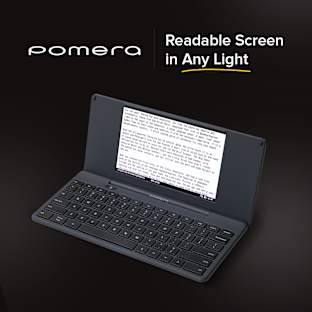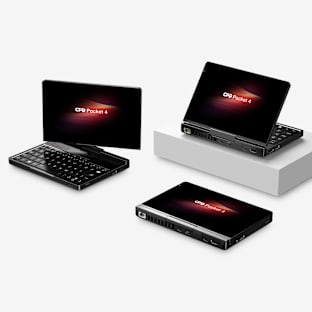Who we are:
Libre Computer (Project) was created with the goal of commoditizing general-purpose computing platforms through Free Open Source Software (FOSS). We support software engineering efforts in upstream Linux, u-boot, and other community projects for the hardware platforms we adopt. To date, we have launched three FOSS supported platforms: Le Potato, Renegade, and Tritium. These boards act as the foundation of composible and re-usable computing systems. We continue to drive upstream software development for these platforms so that they become more intuitive, faster, and more capable. All of our platforms receive long term support in excess of five years.
Firefly (Team) is a core Libre Computer partner based in Zhongshan, China. With nearly ten years of hardware and software development expertise, the Firefly team is the top independent design house (IDH) for Rockchip-based solutions. They first brought the Firefly RK3399 platform to the market nearly two years ago and continue to deliver reliable performant solutions for design customers.
Overview of Renegade Elite:
Renegade Elite is a low-profile high-performance 4K-capable 64-bit ARM computer with 4GB of LPDDR4 RAM capable of running desktop-class Linux based operating systems like Debian, Arch, Ubuntu, Fedora, OpenSUSE, Android 8.1, and more. At 1.19 cm (0.47 inches), it is one of the thinnest SBCs on the market as well as being one of the fastest compared to Cortex-A53 boards like the Raspberry Pi 3 or Cortex-A17 boards like the ASUS Tinker Board. It is supported by upstream Linux which means that software support for hardware capabilities will continuously improve unlike other platforms that rely on proprietary vendor board support package (BSP).
![]()
Renegade Elite features a rich set of standards-compliant external interfaces. There are two USB 3.0 Type-C ports featuring DisplayPort Alternate Mode for driving 4K monitors (only one can be used in DisplayPort Alternate mode at a time). The rear Type-C port also features support for USB Power Delivery which enables single cable power, 4K video, and peripheral connectivity. HDMI 2.0 with 4K is also featured and can be driven simultaneously with DisplayPort, Embedded DisplayPort, or MIPI DSI.
![]()
For server application, the board offers UEFI-capable GUI bootloader, onboard headers for 802.3at (30W) PoE+ mezzanine support, and battery backed real-time-clock (RTC). High-speed header expansion with 4-lane PCI-E 2.1 enables SSD and SATA mezzanines while low-speed header expansion support USB, SDIO, UART, and I2C mezzanine. eMMC 5.x connector supports module with up to 128GB of storage.
![]()
For product integration, Renegade Elite supports Embedded DisplayPort, MIPI-DSI, MIPI-CSI, and MIPI-CSI/DSI dual role interfaces. Paired with stereo vision cameras or displays, Renegade Elite becomes an ideal platform for virtual reality, artificial intelligence, stereo computer-vision, heterogeneous compute, GPGPU, convolutional neural-networks, OpenCL, TensorFlow, and Caffe.
Renegade Elite Expansion Mezzanines
The expansion mezzanine for Renegade Elite comes in two flavors: Lite and Advanced.
Lite Expansion Mezzanine Features:
- M.2 M-Key Connector with 4 Lane PCI-Express for SSDs and High Speed Peripherals
- Supports 22mm x 30mm/42mm/60mm/80mm/110mm Lengths
- M.2 E-Key Connector with SDIO and USB 2.0 for Wireless Expansion (No PCI-E!)
- Supports 22mm x 30mm Length
The Advanced Expansion Mezzanine has all of the capabilities of the Lite Expansion Mezzanine along with three additional features:
- Lithium Polymer Battery Support via XT30 Connector
- Battery Backup and UPS functionality
- 25W Power-over-Ethernet+ (IEEE 802.3at) support
- Support for charging battery
The advanced mezzanine allows Renegade Elite to be used in situations with unreliable power and/or Ethernet only applications. That means you do not have to run separate power wires to Renegade Elite.
![]()
RK3399 Key Specification:
- Dual performance out-of-order ARM Cortex-A72 cores
- Quad power-optimized in-order ARM Cortex-A53 cores
- Quad OpenGL ES 3.2/Vulkan/OpenCL 1.2 ARM Mali-T860 cores
- 4GB LPDDR4 SDRAM
- 128Mb SPI NOR for GUI bootloader
- 120mm x 72mm x 11.9mm
Project Status:
The board has been fully tested and the PCBs are undergoing production. We expect manufacturing to be completed and fulfilled by late August. We will slowly release more demonstration videos as we free more time for filming. If there's something you have a question about or not sure on, don't hesitate to leave a comment.
Frequently Asked Questions:
Do you have a model with more than 4GB? - No, RK3399 is limited to 4GB of addressable memory.
What is the difference between this and a Raspberry Pi 3 Model B+ or ASUS Tinker Board or ODRIOD-XU4? - This is 4 times as fast as a Raspberry Pi 3 Model B+, twice as fast a ASUS Tinker Board, and 35% faster than an ODROID-XU4. It has four times or twice the available memory of those models. It supports 64-bit ARMv8 where as ASUS Tinker Board and ODROID-XU4 only support 32-bit ARMv7. Onboard PCI-E high speed expansion interface enables high speed peripherals that are not possible on those other boards.
What is the difference between this and a ROCKPro64 or ROCK960? - While both of those are based on the same RK3399 SoC, Renegade Elite is designed using higher performance components. The board layout is optimized for full size cooling and better heat dissipation. Firefly team also specializes in Rockchip solutions and provides more software support than other vendors.
What is the difference between this and the original Renegade? - The original Renegade is designed as a power efficient device using at most 5W. It uses less power than a Raspberry Pi 3 Model B+ while offering higher performance. Renegade Elite is designed from the ground up as a high performance solution using up to 15W. Power consumption is roughly triple that of the Renegade so this new board is suitable for applications that require higher performance at the expense of more energy consumption.
How is shipping handled? - All products are shipped out of Shenzhen, China and may be subject to import duties and taxes imposed by your regional or local government. If it is subject to such regulations, it is your responsibility to pay it in order to receive the merchandise.

































































